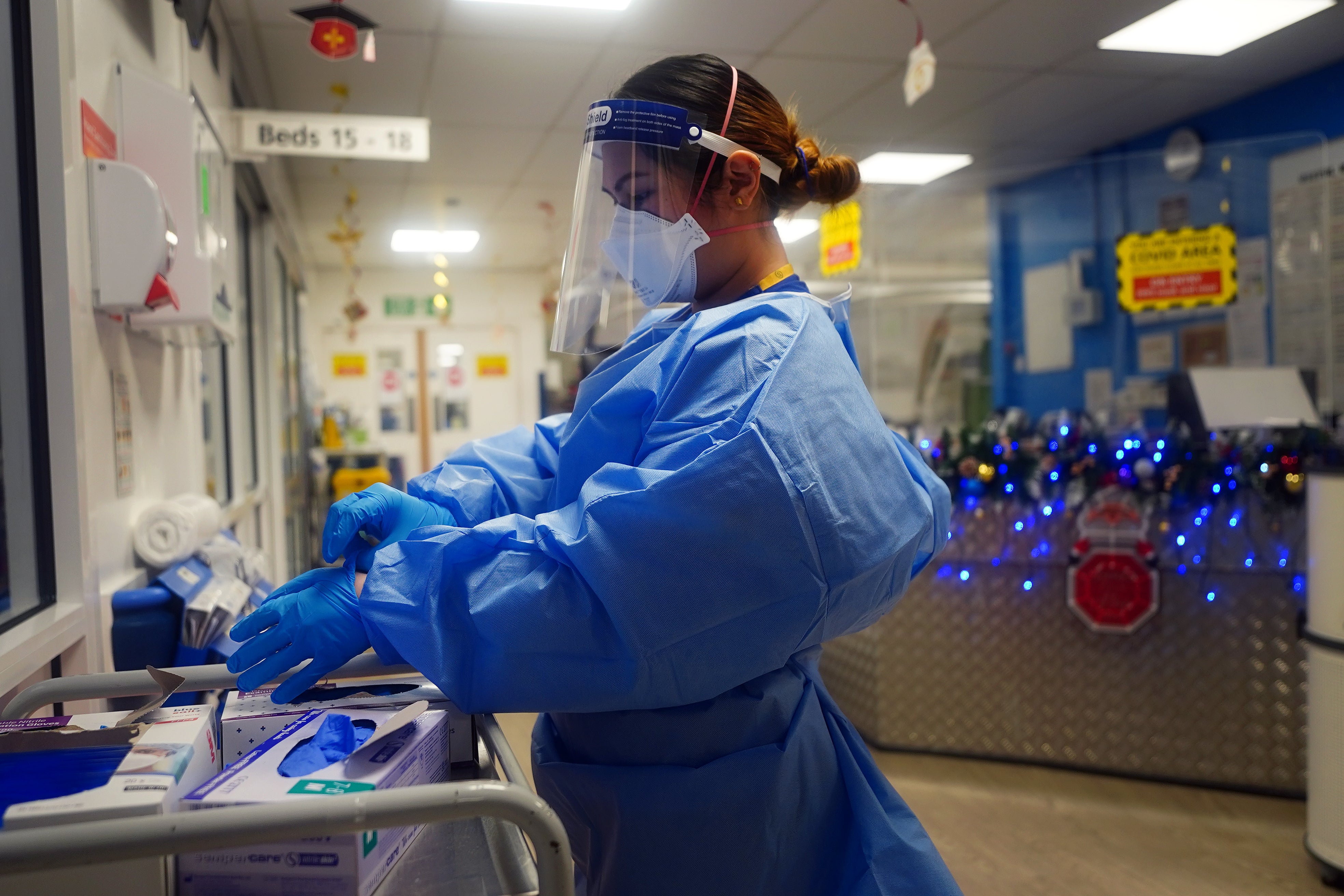Eighth of Covid patients admitted to hospital have heart inflammation – study
Researchers tracked 159 coronavirus patients after they were admitted

Your support helps us to tell the story
From reproductive rights to climate change to Big Tech, The Independent is on the ground when the story is developing. Whether it's investigating the financials of Elon Musk's pro-Trump PAC or producing our latest documentary, 'The A Word', which shines a light on the American women fighting for reproductive rights, we know how important it is to parse out the facts from the messaging.
At such a critical moment in US history, we need reporters on the ground. Your donation allows us to keep sending journalists to speak to both sides of the story.
The Independent is trusted by Americans across the entire political spectrum. And unlike many other quality news outlets, we choose not to lock Americans out of our reporting and analysis with paywalls. We believe quality journalism should be available to everyone, paid for by those who can afford it.
Your support makes all the difference.One in eight people who were admitted to hospital with Covid-19 between May 2020 and March 2021 were later diagnosed with myocarditis, or heart inflammation, research into the long-term effects of the virus has found.
Glasgow University and NHS Greater Glasgow and Clyde carried out the largest study of its kind, tracking 159 coronavirus patients after they were admitted.
It found they had a number of ongoing health conditions.
The study, published in Nature magazine, examined why some patients suffered long-term ill health after admission to hospital with Covid-19.
Previously it has been speculated that long-term ill health is linked to pre-existing medical conditions but the Glasgow University research suggested it was instead the severity of the coronavirus infection.
The “Cisco” (Cardiac Imaging in SARS Coronavirus disease) study followed the group of discharged patients for a year, comparing their health to a control group of people with similar characteristics.
Further assessments will be made at the 18-month and five-year marks for the patients.
These results bridge a vital knowledge gap
Researchers found one in eight patients admitted to hospital with Covid-19 have heart inflammation, while inflammation across the body and damage to other organs such as the kidneys was also common.
Principle investigator Professor Colin Berry said: “Covid-19 is a multi-system disease, and our study shows that injury on the heart, lungs and kidneys can be seen after initial hospitalisation in scans and blood tests.
“These results bridge a vital knowledge gap between our current understanding of post-Covid-19 syndromes, such as long Covid, and objective evidence of ongoing disease.
“One of the most important findings of the Cisco study is that it is the severity of a patient’s Covid-19 infection – not their underlying health conditions – that is most closely correlated with the severity of any ongoing health outcomes post-discharge.
“We found that previously healthy patients, without any underlying health conditions, were suffering with severe health outcomes, including myocarditis, post-hospitalisation.
“The reasons for this are unclear, but it may be that a healthy person who is hospitalised with Covid-19 is likely to have a worse Covid infection than someone with underlying health conditions who is hospitalised.
“More work needs to be done here to understand the risks, and also on how we can better support patients who have ongoing health outcomes after being hospitalised with Covid-19.”
The research paper said women were more likely to be affected by myocarditis post-Covid, which in turn was linked with lower mental and physical wellbeing.
Patients were enrolled in the study during the first and second waves of the pandemic, and as a result many were unvaccinated.